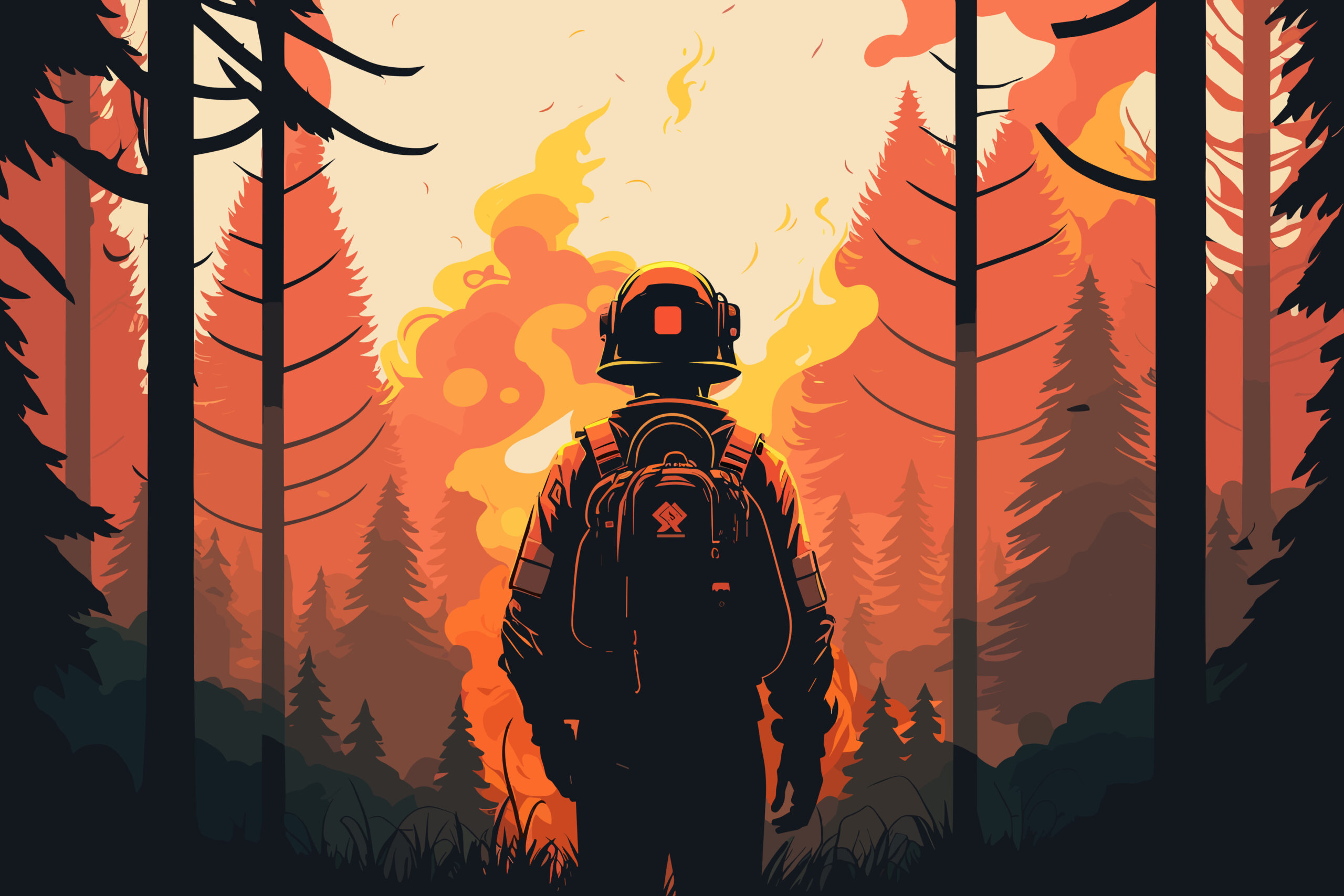
Bravery and loss: Facing safety challenges in a painful wildfire season
August 21, 2023
By
Todd Humber

Image: Anastasia/Adobe Stock
Editor’s note: The following From The Editor column appeared in the summer print issue of OHS Canada.
The tragic loss of lives among Canadian wildfires in recent weeks has sent a wave of sorrow across the country.
British Columbia Premier David Eby said it best: “This wildfire season has been profoundly awful” and the fatalities have “shaken people.” The headlines on OHSCanada.com came fast and frequent as these brave firefighters fought the massive wildfires devastating parts of the nation. The ages of the these heroes exacerbates the issue — they are so young.
On July 13, 19-year-old Devyn Gale died while fighting a fire near Revelstoke, B.C., after being struck by a falling tree.
On July 15, 25-year-old Adam Yeadon died fighting a blaze near Fort Liard in the Northwest Territories.
On July 19, 41-year-old Ryan Gould was killed when the helicopter he was using to fight a fire crashed near Haig Lake in Alberta.
And, just as we were going to press with this issue, 25-year-old Zak Muise was killed in northeastern B.C. when his heavy-duty ATV rolled over a steep drop on a gravel road.
There are some jobs where it’s harder than others to keep workers safe. I was reminded of this while talking with Sig Kemmler for this issue’s cover story on keeping workers safe around heavy equipment.
Kemmler bristled at the idea of telling workers not to be complacent or telling them to “be safe.” Trips, slips and falls are the number one source of injuries in logging, he said. Not falling isn’t an option — these workers will slip and fall regularly and, likely, multiple times a day.
The goal, instead, is to ensure the falls don’t lead to serious injury and to learn from mistakes made. I urge you to read the article and pay particular attention to the “condition of upset” that he runs through.
Wildfire fighting and logging present dynamic and ever-changing conditions. These are not sterile environments where safety can be easily tamed. But that doesn’t mean they get a green light to resign themselves to their fates.
First, we must honour the fallen by remembering that their deaths are not statistics. In OHS Canada, we name them. We tell their story when possible and we remember their sacrifice. Their deaths will always serve as a call to action, and not just for physical safety but also the mental toll these jobs take. It’s fertile ground for dangerous distraction.
Second, we should take Kemmler’s advice: Complacency is not a failure. Rather, it is a very human response to familiarity and repetition. We can never eliminate it, but by ensuring open dialogue and rewarding proactive safety behaviours we can fight to keep it at bay. Also, if somebody is distracted, encourage them to take five minutes to recompose themselves.
Third, we have to keep innovating and investing in technology. The better our equipment gets to fight fires, the safer these workers will be — and, with climate change, these battles are going to get tougher and more frequent.
Lastly, we have to remember we’re all responsible for the safety of these men and women. The burden falls not just on their shoulders, or that of their supervisors. It’s a collective fight involving employers, regulators and workers.
The legacy of Devyn, Adam, Ryan and Zak — and all workers who have perished and been injured — demands nothing less than our best efforts to constantly improve safety.
Todd Humber is the senior editor for OHS Canada.